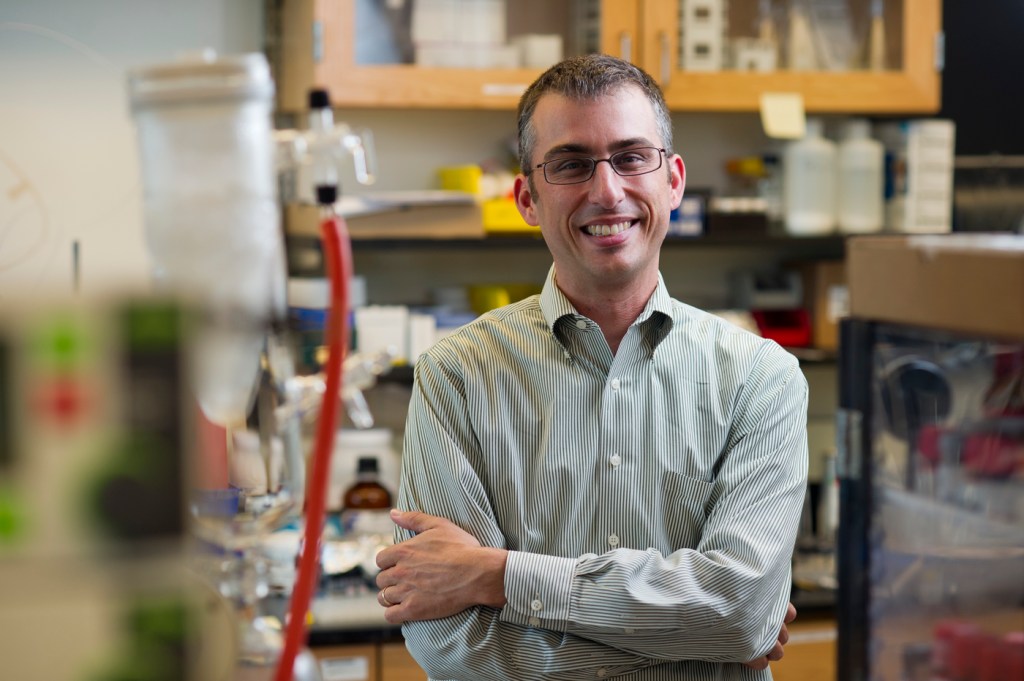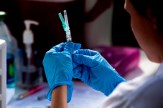Why you should care about rare tropical diseases

Written by Bill Ibelle
They’re neglected, they’re tropical, and they affect mostly the poor—so why should Americans be concerned about tropical diseases?
For chemistry professor Mike Pollastri, a man who has dedicated his life to finding cures for these diseases, the answer is simple: We have a moral imperative to improve the lives of all of humanity.
But if Pollastri’s altruistic answer doesn’t convince you, he has another.
“Some of these diseases are going to become our problem soon,” he says. “It’s just a matter of time. With increased travel and continued climate change, they’re going to move north from the tropics. Dengue fever has already reached Miami and so has the West Nile virus.”
I came to Northeastern because universities exist to generate knowledge to better humankind,” he says. “The drugs we develop will be used to treat the poorest of the poor—the bottom billion.
Michael Pollastri
professor and chair, Department of Chemistry and Chemical Biology
Chagas disease, a major cause of congestive heart failure, currently affects about 300,000 people in the U.S. It isn’t spreading at the moment because the triatomine insects, also known as the kissing bug, which transmits the parasite, is still confined to tropical regions. But this will change.
“It’s only a matter of time before the insects moving north meet the reservoir of people who have Chagas in the U.S.,” says Pollastri.
When they do meet, it will take years to develop the drugs needed to combat the disease.
Pollastri says the Ebola virus offers an instructive preview of what could happen if we fail to start work now.
“When we had the Ebola outbreak in the U.S. people asked, ‘Why don’t we have a vaccine for this?’ The answer is that we ignored this disease for 15 years. In the pharmaceutical industry, people work where the money is. You can’t fund your lab on altruism.”
But in universities like Northeastern, you can.
Major progress
Three years ago, Pollastri launched a $25,000 crowdfunding campaign. His initial goal was to create a broad data-sharing network among tropical disease researchers throughout the world, so the few labs that are doing this kind of work could build off each other.
The impact of that rather modest sum has been dramatic. Five collaborating labs in the U.S. and Europe have produced 29 published papers and five new chemical classes that are now in animal testing. In addition, this seed money has produced $9.2 million in federal funding—a 370-fold return on the donor investment.
That seed money was essential, says Pollastri, because of the chicken-and-egg nature of government research funding: You can’t get funding without proof that your research is promising, and you can’t prove your research is promising without money to conduct that research.
So Pollastri used $10,000 of the donor money to conduct preliminary research that produced the data needed to convince agencies like the National Institutes of Health to fund his projects.
He also convinced a few pharmaceutical giants to contribute research for free. For example, AstraZeneca performed a series of experiments that would have cost Pollastri’s group about $300,000 a year and GlaxoSmithKline completed three projects in its Madrid labs with funding from the Tres Cantos Open Lab Foundation.
The results have been impressive. Pollastri’s group has synthesized more than a thousand new compounds that have led to work on five new drugs currently in the preclinical stage of development.
Pollastri considers himself a man on a mission—one who has been fortunate enough to have found a home that supports that mission.
“I was driven by the moral requirement,” he says. Pollastri left a lucrative job in the pharmaceutical industry when he realized that private drug companies had no financial incentive to invest in research that affected the poorest parts of the world.
“I came to Northeastern because universities exist to generate knowledge to better humankind,” he says. “The drugs we develop will be used to treat the poorest of the poor—the bottom billion.”





